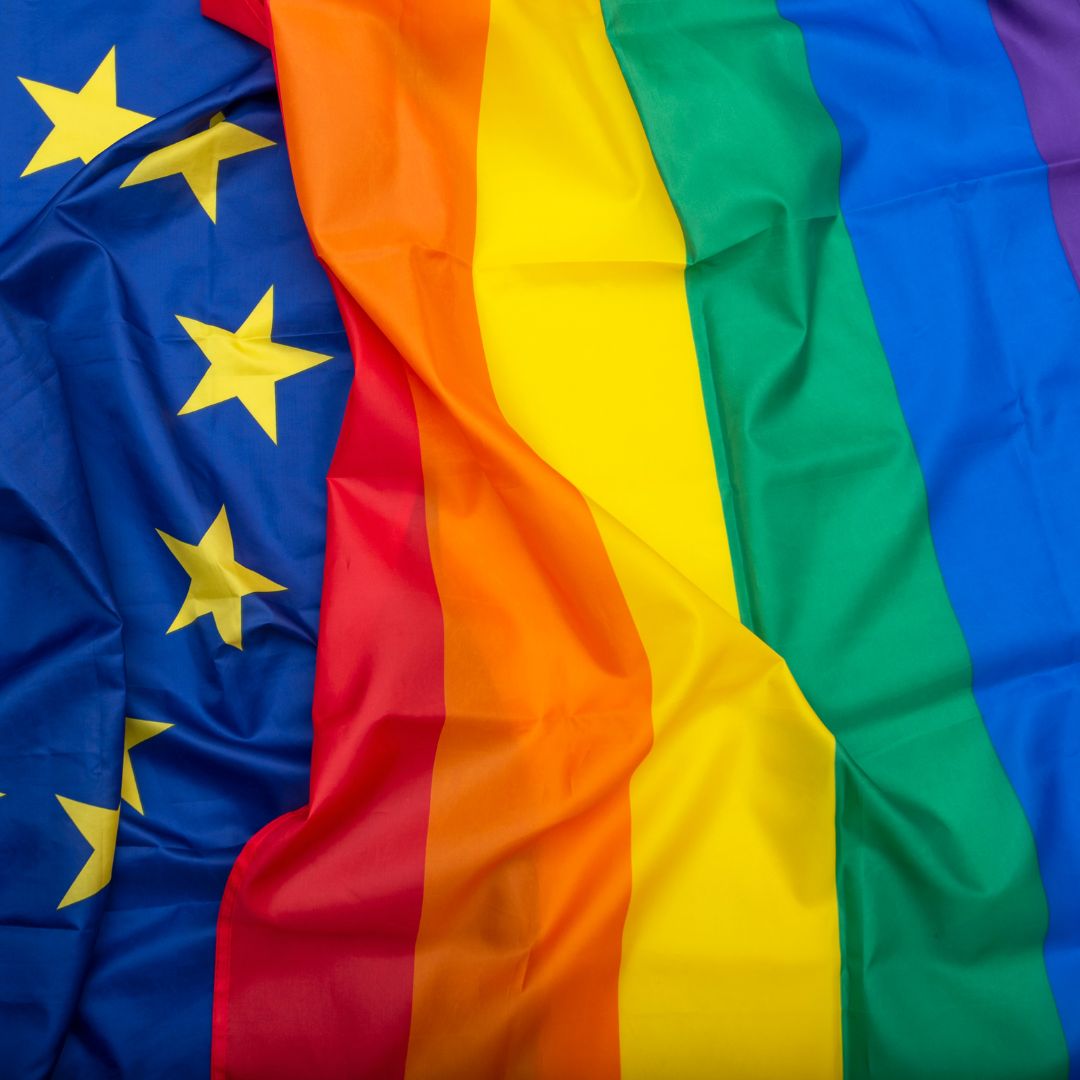Did you know that acceptance of LGBTI people is stronger than ever across the EU?

Despite hateful campaigns and attacks on LGBTI rights, more and more people across the EU agree that LGBTI people deserve equal rights and a life free from discrimination, according to a new report.
Published last month, the latest Eurobarometer report, charting public opinion in the European Union, shows acceptance of LGBTI people is clearly on the rise across all EU countries. The claim of some governments that they represent the will of the majority of their people when discriminating against LGBTI people, does not hold against the findings.
The report also clearly shows that acceptance is significantly higher amongst people who know someone from the LGBTI community personally, counteracting the characterisation of LGBTI people as an abstract threat by some leaders. Being friends with LGBTI people has a large impact on responses to the survey questions.
The results, however, reflect clearly that ongoing attacks on LGBTI rights have had an impact. The report has found that more than half of the general public say there is widespread discrimination in their country on the basis of gender identity (being transgender, 57%) or sexual orientation (54%). Discrimination against intersex people is in the high numbers too, at 47%. Published last month, the report finds that the highest levels of perceived discrimination are on the basis of being Roma (65%), of skin colour (61%,), and of ethnic origin (60%).
The Eurobarometer survey is carried out every four years, with the last report published in 2019. Public perception of discrimination against trans people has grown by nine percentage points (pp’s) since then, while against intersex people, it is up by eight pp’s. Sexual orientation is up just one pp, however the fact remains that over half of respondents think discrimination on the basis of sexual orientation is widespread.
However, at the same time, a rising number of 69% of EU citizens say that lesbian, gay and bisexual people should have the same rights as heterosexual people, and 64% say that trans people should have the same rights as everyone else.
When it comes to legal gender recognition, 62% believe that trans people should be able to change their civil documents to match their gender identity. Further, 47% believe that official documents should offer a third option (X or O) for those who do not identify as female or male. Notably, for both of these questions, the percent of respondents agreeing increased (3 pp’s and 1 pp, respectively), but the number disagreeing also increased (2 pp’s and 4 pp’s, respectively). This may indicate that there is increased awareness of the issue in the EU, as in both cases, the number of respondents saying that they did not know decreased by 5 pp’s.
Increasing support also for same-sex marriage
72% of respondents say that same sex marriage should be allowed throughout Europe; up three pp’s since 2019. In Hungary and Poland, which have seen much anti-LGBTI rhetoric since the last Eurobarometer report, 42% and 50% of respondents agree with same sex marriage, respectively, showing the resilience of the public’s perspective even in the face of intense political anti-LGBTI pressure. The notable exceptions here are Bulgaria and Romania. Just 17% of Bulgarians agree with same sex marriage and 25% of Romanians.
Support for inclusive education
Most respondents think school lessons and material should include information about sexual orientation (71%) and the existence of multiple gender identities (68%). In 2019, 71% also said that sexual orientation should be included in curricula; so despite the heavy public attacks on inclusive education, support is stable.
In Hungary, the numbers of people agreeing with the inclusion of sexual orientation and gender identities (SOGI) in education have even gone up. There’s an increase of two pp’s in those who agree with inclusion of sexual orientation and a striking eight pp’s in those who agree with education on multiple gender identities.
Levels of comfort
The Eurobarometer survey asks respondents about their levels of comfort with LGBTI people in their lives, including with relationships their adult children are in, as colleagues, and in the highest elected positions.
The numbers in this regard are high. 59% of European citizens, for instance, would be totally comfortable if one of their children was in a love relationship with someone of the same sex, while 48% would be comfortable if their offspring were in love relationships with trans or intersex persons (the Eurobarometer survey puts both trans and intersex together in this series of questions). Lesbian, gay and/or bisexual government leaders would be “totally comfortable” for 68% of respondents (up 4 pp from 2019), while 58% would be happy to have a trans or intersex person in the highest elected position.
A clear message
The overall findings of this Eurobarometer survey are that despite a surge over the past few years in anti-LGBTI hate speech and violence, and negative media reporting particularly in relation to trans people, most Europeans are far more accepting of lesbian, gay, bisexual, transgender and intersex people than it would appear on the surface, and that governments who are introducing legislation that discriminates against LGBTI people are not in accordance with the will of the citizens of their countries. As a measure of attitudes in the EU, it shows that governments should be introducing more protections, while making sure that legislation already in place is fully implemented.